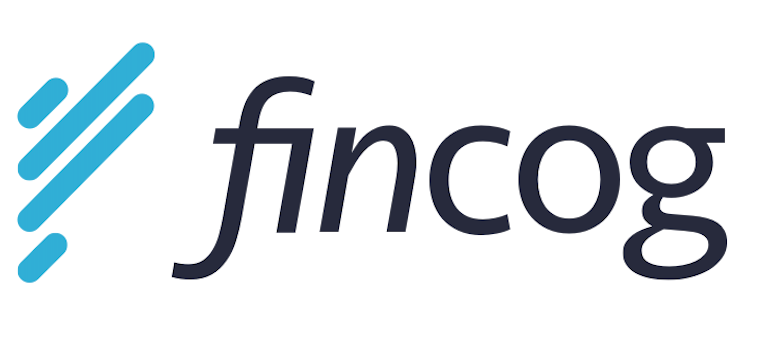In the previous blog of the series, we discussed why companies should set up Corporate Venture Capital (CVC) funds, common pitfalls and key factors required for success. In this follow-up blog, we focus on CVC funds established by financial institutions, especially by Dutch banks. This blog examines these fintech funds in detail and how they can be further improved to capitalize potential.
By Jeroen de Bel & Meng Liu, Fincog
More and more companies are using CVC arms to scan and invest in their ecosystems. US companies, in particular US technology companies, have been using CVCs to explore innovative technology solutions for some time. The pace of innovation in the tech world is known to be rapid. Through corporate venturing, technology companies not only stay engaged with startups to ensure strong positions in the existing ecosystems, but also stimulate developments of nascent ecosystems for success of new products and services.
Financial institutions primarily started to exploit Corporate Venture Capital as a part of their innovation strategies during the current decade. For example, Citi Bank launched Silicon Valley based Citi Ventures in 2010. The goal of Citi Ventures includes investigating emerging trends at the intersection of technology and financial services, incubating new solutions and investing in cutting-edge solutions that are shaping the future of financial services. The fund identified 5 investment areas including financial services & technology, data analytics & machine learning, commerce & payments, security & enterprise IT, customer experience & marketing. The fund has made more than 50 investments since launch, with currently 48 companies in the portfolio.
BBVA Ventures is another example that was launched in 2013. The bank further increased the fund size from USD 100 million originally to 250 million in 2016. Since 2016, BBVA established partnership with Propel Venture Partners and invests the $250 million in Propel’s funds as a limited partner. Propel manages the investment independently. The aim of the investment is two folded: to invest in the best fintech startups and to support BBVA’s vision of using technology to change finance services for the benefit of the customers. Investment areas of focus include payments, credit, insurance, wealth management, e-commerce, security and compliance.
Rise of CVC funds by Dutch banks
CVCs are yet new practices for most of the Dutch incumbents, especially for financial institutions. The financial industry has traditionally been heavily regulated. The benefits of innovation that creates growth and welfare must be carefully weighted against the potential risks. While companies such as Shell and DSM have used CVC or outside-in venturing for almost two decades and have gained experience to some extent, Dutch banks and insurers need to learn from scratch on how to use CVC to benefit from external innovation.
As a result of the increasingly competitive fintech market, CVC plays a more important role than ever for banks to stimulate innovation. Since 2015, ABN AMRO, ING and Rabobank, one after the other, each launched their CVC investment arms. From this point on, the speed of investments in fintech startups by Dutch banks started to pick up.
ABN AMRO launched the Digital Impact Fund (DIF) in October 2015 with EUR 10 million in fund size and increased it to EUR 50 million in March 2018. The DIF makes strategic investments for the bank in innovative startups and scaleups in digitizing financial services and products. The fund has made investments in areas including open banking, banking technology platforms, data management and cybersecurity, and lending solutions. The fund currently has 6 companies in its portfolio.
ING Ventures represents another example. The fund was launched in October 2017 with EUR 300 million in fund size. The fund aims to scan innovative solutions in the outside world, to complement the previously internal-driven innovation approach to help accelerate pace of innovation. The fund currently has 13 companies in its portfolio. Investment areas are broad, including open banking, artificial intelligence, SME finance platform, payment, insurance robo-advisers, account aggregation and personal finance apps.
Following ABN AMRO and ING, in March 2018 Rabobank launched Rabo Frontier Ventures (RFV). The fund has EUR 70 million in size. It focuses on fintech and food & agri sector with four investment areas: financial cruise control, data4food, platform banking and emerging technologies. Since inception of the fund, investments in 10 companies have been made. These investments cover areas including Agtech, commodity trade platforms based on blockchain, smart contracts, payments, account aggregations, personal investment and automobile apps.
Funds share commonalities but also differences
These corporate venture capital funds from Dutch banks share some important commonalities. First, they are all of strategic objectives as primary goals and form integral parts of the banks’ innovation strategies. Financing for the funds are sourced internally. Second, these funds make direct lead or syndicated investments. They do not mainly invest through independent Venture Capital funds such as BBVA. Third, they share common investment themes, including platform banking, open banking and emerging technologies.
While these CVC funds share common characteristics, they also have differences. First, fund size varies considerably. Second, some investment areas are different. While DIF invests in data analytics and security, neither ING Ventures nor RFV have made investments in this area. The latter two invest both in payment, account aggregation and personal finance apps while DIF does not. In addition, RFV also invests in food & agri sector besides fintech space.
Clear objectives and investment areas are key for success
To run successful CVCs, setting consistent objectives and investment areas are essential. A common challenge for CVCs in general, and also for CVCs by Dutch banks, is lacking investment focus. Investment areas should be a direct translation of the bank’s strategy and support achieving short- to long-term innovation goals.
Not all funds by Dutch banks currently have a clear framework to guide their CVC investments. Investment areas and the rationale behind them are not always clearly outlined. An investment framework summarizing objectives, investment areas and characteristics (such as stage of deals, ticket size) can be reviewed and modified annually or even bi-annually to reflect market developments.
Such clarity not only helps the investment team select the right investment opportunities; it is also important for startups to understand the CVC sufficiently to evaluate investor fit. Only by establishing clear focus areas will the CVC funds avoid making scattered investments and will the funds effectively contribute to banks’ innovation goals.

Fincog specialises in fintech consulting. They offer bespoke solutions in strategy consulting, market research, and commercial due diligence. They work for a broad range of stakeholders in fintech such as banks, payment service providers, investors and regulators. Their solutions give detailed, actionable insights, and business strategies propel businesses forward.


